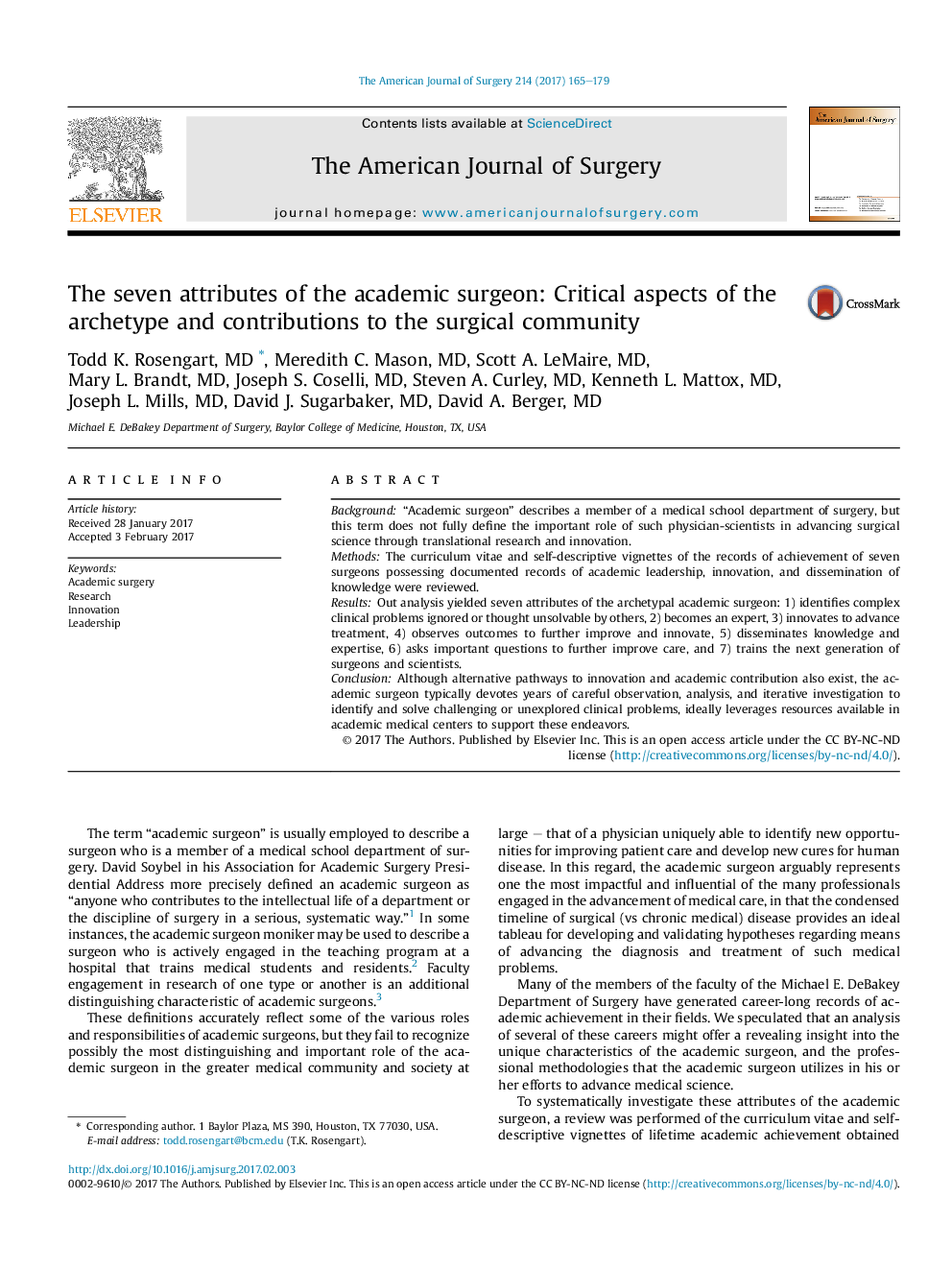| Article ID | Journal | Published Year | Pages | File Type |
|---|---|---|---|---|
| 5731001 | The American Journal of Surgery | 2017 | 15 Pages |
Background“Academic surgeon” describes a member of a medical school department of surgery, but this term does not fully define the important role of such physician-scientists in advancing surgical science through translational research and innovation.MethodsThe curriculum vitae and self-descriptive vignettes of the records of achievement of seven surgeons possessing documented records of academic leadership, innovation, and dissemination of knowledge were reviewed.ResultsOut analysis yielded seven attributes of the archetypal academic surgeon: 1) identifies complex clinical problems ignored or thought unsolvable by others, 2) becomes an expert, 3) innovates to advance treatment, 4) observes outcomes to further improve and innovate, 5) disseminates knowledge and expertise, 6) asks important questions to further improve care, and 7) trains the next generation of surgeons and scientists.ConclusionAlthough alternative pathways to innovation and academic contribution also exist, the academic surgeon typically devotes years of careful observation, analysis, and iterative investigation to identify and solve challenging or unexplored clinical problems, ideally leverages resources available in academic medical centers to support these endeavors.
